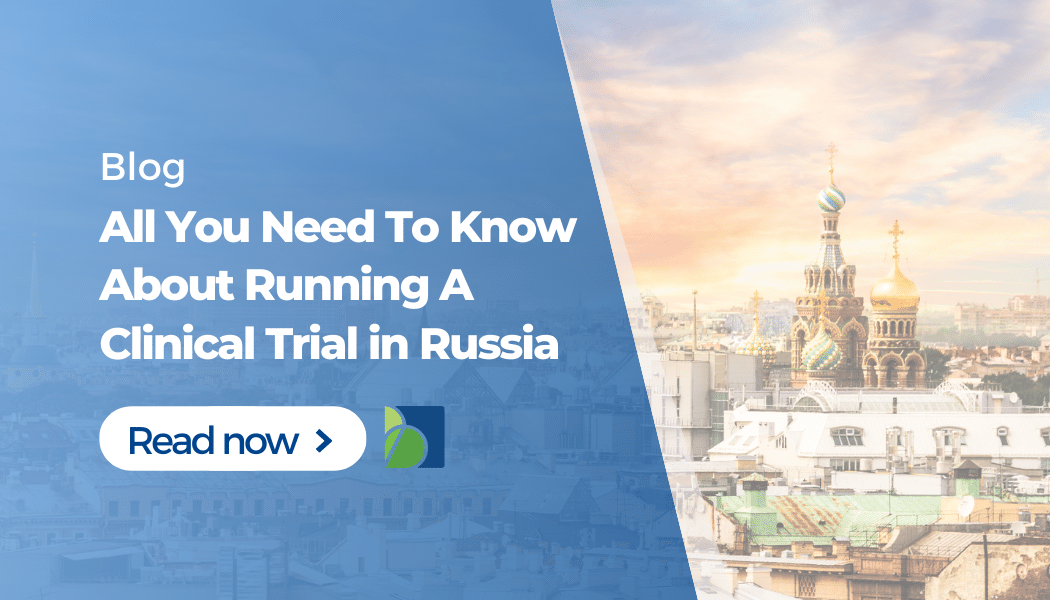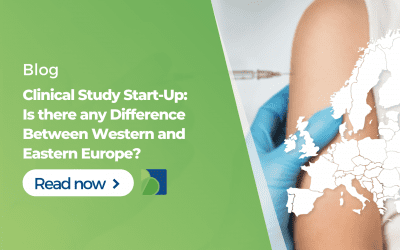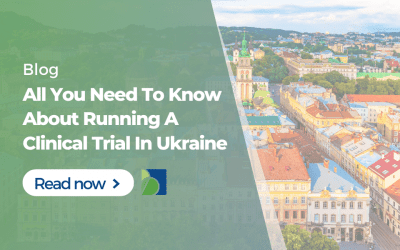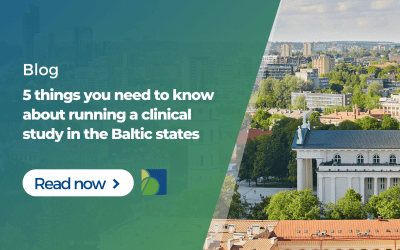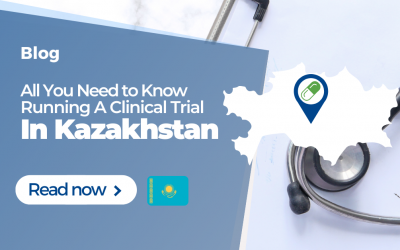The pharmaceutical industry progressively carries out Clinical Trials across national and international boundaries. However, regional regulations still govern most studies, and, as a result, the location of your clinical trial site is paramount in terms of data trustworthiness. For instance, when Russia approved their first COVID-19 vaccine (Sputnik V) based only on clinical research conducted in Russia, it surely piqued everyone’s interest and may have raised some eyebrows. Regardless, Russia is a promising country for international clinical trial conduction based on its population of almost 145 million and share of enrolled clinical trial participants. Moreover, since Russia set up its first international clinical trial about 20 years ago, they kept increasing Russia’s potential for Clinical Development. So, what do you need to know about running a Clinical Trial in Russia?
1. History of Clinical Trials in Russia
In 2018 health authorities (HAs) approved 653 clinical trials (CT) in the Russian Federation, less in overall numbers compared to the same indicator from 2016 – 898 approved CTs. However, this decrease was observed across all types of clinical trials except for international multi-centre clinical trials (IMCT), which opposed the trend, increasing by 2.1% from 281 to 287. As a result, the share of IMCTs reached 44% of the overall number of clinical trial approvals issued, the highest figure since 2012.
2. Advantages of conducting a Clinical Trial in Russia
Thanks to its high recruitment rates, relatively low costs, constantly improving infrastructure and strengthening regulatory framework, it’s only natural that Russia becomes more appealing to cost-pressured pharmaceutical companies. But is its growth really different from other markets? And what are the benefits of conducting clinical research in Russia? Below, we listed the main advantages of running a Clinical Trial Russia:
- Short enrollment periods supported by the centralized healthcare system and available patient pool and high recruitment rate;
- Highly qualified research centres with 1445 medical organizations are accredited to conduct clinical trials today;
- Data acceptance (Russian trial centres have successfully passed through many audits, and inspections including FDA and EMA and modern technologies are available at the majority of hospitals);
- Relevant investigators expertise (educated, experienced and compliant investigators and staff who are GCP trained and certified);
- Cost-efficiency (lower investigator grants and ancillary costs);
- Growing clinical trial infrastructure, including early-phase trial sites;
- Improving regulatory framework.
3. Early Phase Research in Russia
Additionally, Russia offers distinct benefits for early phase investigations. Russia has seasoned clinical trial vendors, experienced in early phase research and plenty of state-of-the-art hospital-based phase I sites. These specialized units are adept at overcoming early phase study challenges like cohort management, complex study logistics, ethical considerations, and timely data entry.
Additionally, Russia provides access to patients who are eager to engage in clinical trials to get access to innovative medications and established regulatory approval processes and schedules. For example, the regulatory clearance procedure takes only 35 working days, similar to the EU’s clinical trial timetables.
4. The clinical trial approval process in Russia
Central regulatory bodies in Russia governing clinical trial processes are:
- Ministry of Health of the Russian Federation (MoH): Accreditation of medical Institutions, Approval of clinical trials, Information services related to clinical trials and Relations with the medical community.
- Federal Service for Surveillance in Healthcare: Supervision of clinical trials, Inspections in clinics and Pharmacovigilance.
- Scientific Center of Expertise of Medical Products (SCEMP): Review quality, efficacy and safety data of new drugs and scientific expertise of the proposed clinical studies and Ongoing review of updated/new clinical trial information/documents.
- National Ethics Committee (NEC): Review of clinical trial applications and provision of opinions on ethical aspects of clinical trials.
- The regulatory process is transparent and starts with submitting the application to the Ministry of Health (MoH).
- Once the application is received, within 5 working days, the MoH shall review the completeness of the submission.
- And, if the application is not found to be deficient, shall forward it to the National Ethics Committee (NEC) and the Scientific Centre for Expert Evaluation of Medicinal Products (SCEMP) for review or return it if the application is incomplete or otherwise deficient.
- The MoH conducts scientific and ethical expertise of the provided documents, performed in parallel by the Scientific Centre for Expert Evaluation of Medicinal Products and Ethics Committee.
“In Russia, clinical trial sponsors deal with competent and motivated English-speaking investigators.”
At the NEC, members of the committee receive copies of the application package. Later the NEC reviews the application during their regular committee sessions; typically, these sessions are monthly, where a simple majority of members present at the NEC session make the decisions. Timeframes of clinical trial approvals in Russia.
5. Import & Export Requirements for Clinical Research in Russia
After obtaining the MoH study approval, the study team can apply for an import license for the Investigational Product and an export license for biological samples. The licenses applications require separate document packages and are expected to be completed by the authorized vendor. MoH official review timelines are 12/19 calendar days (for import/export).
6. Local Ethics Committee Involvement
Before starting patient enrollment, the local Ethics Committees (LECs) approval is the final step in the study approval process. LECs are present in all major investigative sites and usually meet every month. Ordinarily, this process, together with import/export license applications, is performed in parallel to save time.
“Investigators are educated, experienced and compliant together with staff who are GCP trained and certified.”
7. Contracting Processes To Initiate Clinical Trials in Russia
In Russia, the contracting process is well defined, and the causes of delayed study start to arise only in sporadic cases. Before the study initiation visits, all contracts have to be signed. The law has defined three main types of contracts:
- Between the Sponsor (or CRO) and the hospital site;
- Between the Sponsor (or CRO) and responsible investigator;
- The tripartite contract between the Sponsor (or CRO), the scientific/educational establishment (university or institute), and the hospital site.
Individual contracts are a great benefit. Usually, State hospitals/universities do not have international currency accounts and are paid only in national currency.
8. Considerations for running a Clinical Trial in Russia
Conducting a clinical trial in Russia can be a good option for expanding international pharma and biotech companies who require need fast subject enrollment, especially in the case of a rare disease or treatment-naïve patient population. We believe more companies will start to view Russia as a potential location for clinical trials, including early phase studies. In Russia, you’ll deal with competent and motivated English-speaking investigators who produce high-quality trial data, and overall project costs are considerably competitive compared to the other countries.
If you’d like to improve your understanding of how to bring a drug to the market in Russia, we invite you to read our articles on Drug Registration in Russia and the Marketing Authorization Process in Russia.


